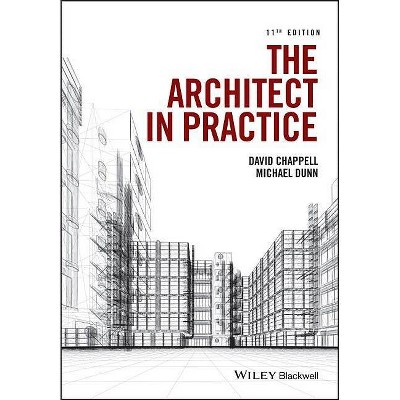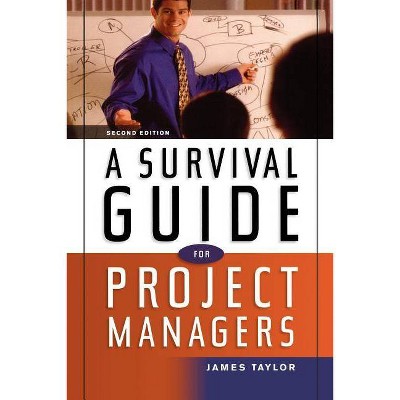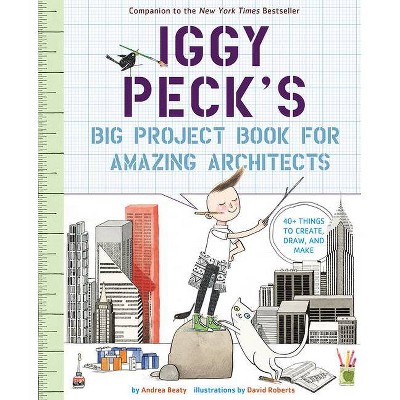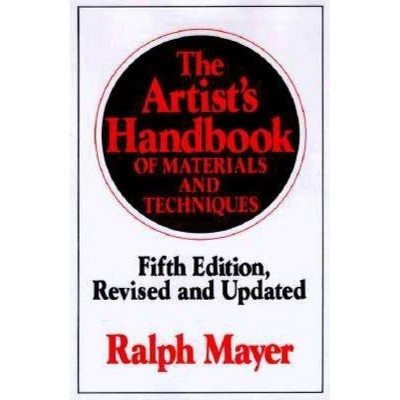Professional Practice for Architects and Project Managers - by David Chappell (Paperback)
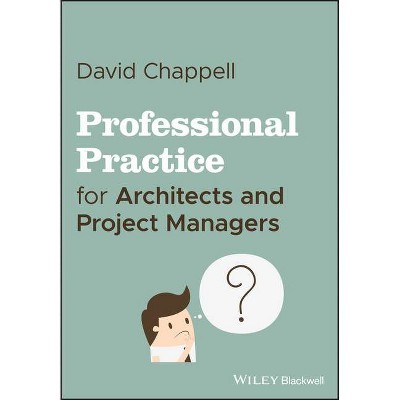
Similar Products
Products of same category from the store
AllProduct info
<p/><br></br><p><b> About the Book </b></p></br></br>"The idea from this book came from several people who had been unfortunate enough to hear me speak at one of the lectures I used to give up and down England, Scotland, Wales and Northern Ireland. I have written a great many books on construction industry topics (70 at the last count): books about the popular forms of contract, about the kinds of letters architects and contractors might write, about architectural, practical and legal matters. My aim was to make most of the books as simple as possible and some people have been kind enough to say that my books are relatively easy and helpful, if not actually enjoyable, to read. It is easy to make a complex subject even more complicated and we all see this every day. The trick is to make a complex subject simple. This takes time but it is rewarding"--<p/><br></br><p><b> Book Synopsis </b></p></br></br><p><b>Explains construction professional practice in an appealing, succinct, and relatively informal way</b></p> <p>This book details the management of construction projects from beginning to end, concentrating on the principles underlying what construction professionals like architects do. It covers the entire process--from the initial meetings with clients through the design, recruitment of a contractor, contract management, construction, and handover--all without referencing legal cases, contract clause numbers, laws, statutes, or the complex jargon that can muddle comprehension. </p> <p>The first part of <i>Professional Practice for Architects and Project Managers</i> offers enlightening chapters that cover: professional standards, perks of the job, bonds and parent company guarantees, office meetings, letter writing, the RIBA Plan of Work, and Building Information Modelling (BIM). The second section teaches all about dealing with the clients, and includes chapters that discuss the extent of services, fee negotiations, conflicts of interest, and more. Next the book looks at such on-the-job responsibilities as surveys, ground investigations, cost estimates, work schedules, letters of intent, etc. The final section goes over everything readers need to know about dealing with a building contract in progress, informing them about advance payments, insurance, site inspections, contractor disputes, terminations, final certificates, and more.</p> <ul> <li>Details the entire process of managing a construction project, including dealing with clients, the design process, running a construction project, and more</li> <li>Highlights what the construction professionals do in their positions</li> <li>Shows how principles of construction management are applied in practice</li> <li>Written in a reader-friendly and accessible way</li> </ul> <p><i>Professional Practice for Architects and Project Managers</i> is an excellent resource for architects and other construction professionals such as contract administrators, project managers, quantity surveyors, and contractors.</p><p/><br></br><p><b> From the Back Cover </b></p></br></br><p><b>Explains construction professional practice in an appealing, succinct, and relatively informal way</b> <p>This book details the management of construction projects from beginning to end, concentrating on the principles underlying what construction professionals like architects do. It covers the entire process--from the initial meetings with clients through the design, recruitment of a contractor, contract management, construction, and handover--all without referencing legal cases, contract clause numbers, laws, statutes, or the complex jargon that can muddle comprehension. <p>The first part of <i>Professional Practice for Architects and Project Managers</i> offers enlightening chapters that cover: professional standards, bonds and parent company guarantees, office meetings, letter writing, the RIBA Plan of Work, and Building Information Modelling (BIM). The second section covers dealing with clients, and discusses the extent of services, fee negotiations, conflicts of interest, and more. Next the book looks at such on-the-job responsibilities as surveys, ground investigations, cost estimates, work schedules, letters of intent, etc. The final section goes over everything readers need to know about dealing with a building contract in progress, covering advance payments, insurance, site inspections, contractor disputes, terminations, final certificates, and more. <p>The book: <ul> <li>Details the entire process of managing a construction project, including dealing with clients, the design process, running a construction project, and more</li> <li>Highlights what construction professionals do in their positions</li> <li>Shows how principles of construction management are applied in practice</li> <li>Written in a reader-friendly and accessible way</li> </ul> <p><i>Professional Practice for Architects and Project Managers</i> is an excellent resource for architects and other construction professionals such as contract administrators, project managers, quantity surveyors, and contractors.<p/><br></br><p><b> About the Author </b></p></br></br><p><b>David Chappell, BA (Hons Arch) MA(Arch) MA(Law) PhD RIBA, </b> is an experienced architect who has worked in both the public and private sectors, as well as acting as contract administrator for a building contractor and as a lecturer in construction law and contracts procedure. He was Professor and Senior Research Fellow in Architectural Practice and Management Research at The Queens University of Belfast and Visiting Professor of Practice Management and Law at the University of Central England in Birmingham. Since 1989, he has practiced as a contracts consultant and adjudicator, both for a large consultancy and as director of his own consultancy.
Price History
Price Archive shows prices from various stores, lets you see history and find the cheapest. There is no actual sale on the website. For all support, inquiry and suggestion messages communication@pricearchive.us

